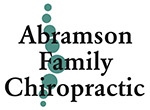Upper Cervical Manual Therapy Benefits TMD Patients
A systematic review and metaanalysis that included eight randomized controlled trials concluded that mobilization and manipulative therapy applied to the upper cervical spine reduces jaw pain and improves maximal mouth opening in patients with temporomandibular disorders (TMD). The finding adds to a growing body of research establishing a connection between TMD and disorders of the cervical spine, of which doctors of chiropractic are well-equipped to manage. Archives of Rehabilitation Research and Clinical Translation, March 2023
Childhood Asthma Linked to RSV During Infancy?
Respiratory syncytial virus (RSV) is a seasonal lower respiratory tract infection that affects most children by age two. In a recent study that included more than 1,900 children, researchers found that those who contracted RSV after their first birthday were 26% less likely to develop asthma by age five. The Lancet, April 2023
Healthier Beverage Choices May Add Years to Lives of Diabetics
New research suggests that exchanging one sugary drink a day with coffee, tea, low-fat milk, or plain water can reduce the risk of early death in type 2 diabetics by up to 18%. BMJ, April 2023 Exercise: Golf Is Good for Arthritis Sufferers. A survey of 459 golfers with osteoarthritis revealed that that over 90% rated their health as good, very good, or excellent, compared with just 64% of non-golfer osteoarthritis patients. The data also show that golfers are three times less likely to report severe psychological distress. Experts note that golfing is a low-impact physical activity that involves plenty of walking and opportunities for social interaction, which can benefit physical and mental health.
Journal of Science and Medicine in Sport, April 2023
Study Reveals Secrets of Reading
According to a recent study, two networks in the brain activate when reading: one neural pathway focuses on processing individual words while the other works to derive meaning from the combined words in a sentence. Proceedings of the National Academy of Sciences, April 2023
The MIND Diet Works to Reduce Dementia Risk
The Mediterranean-DASH Intervention for Neurodegenerative Delay (MIND) diet is an eating pattern that is intended to slow or delay the neurodegenerative decline observed in Alzheimer’s disease patients. A systematic review that included eleven studies concluded that greater adherence to the MIND diet can reduce the risk of dementia by up to 17%. JAMA Psychiatry, May 2023
Quote: “We all have the extraordinary coded within us, waiting to be released.” ~ Jean Houston
This information should not be substituted for medical or chiropractic advice. Any and all health care concerns, decisions, and actions must be done through the advice and counsel of a health care professional who is familiar with your updated medical history.
